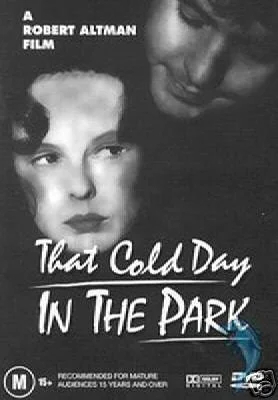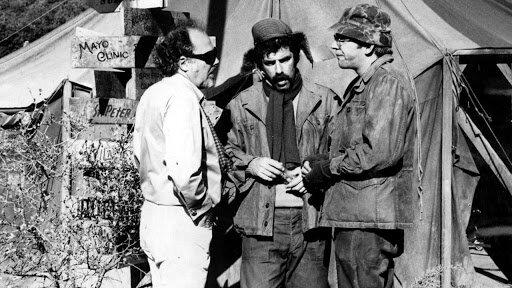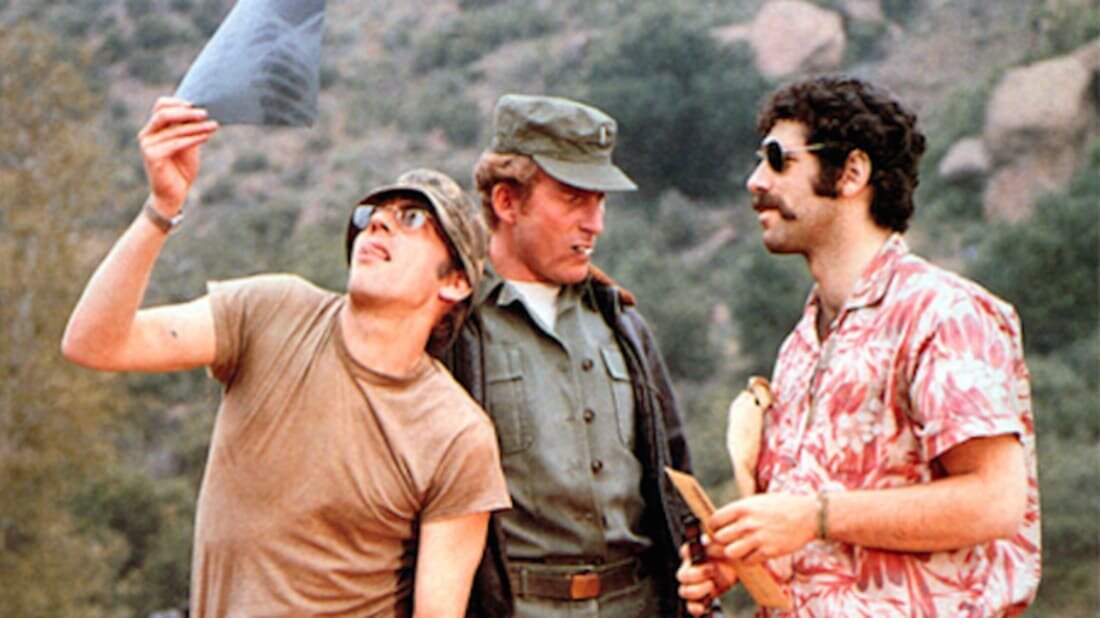M*A*S*H* -- THE MOVIE THAT SPOKE TRUTH TO WAR
A half century ago, Vietnam was tearing America apart. Hardhats beating up “long hairs.” Thousands marching on the Pentagon. Nixon praising his “silent majority.” And the war ground on — nearly 50,000 American dead and counting.
The war was on the news every night — for a half hour, but Hollywood was Missing in Action. Other than John Wayne’s “The Green Berets,” no movie made the slightest comment about Vietnam.
Then in the spring of 1970, 20th Century Fox released a low-budget war movie. The director was little known. The stars were scarcely box office gold. Though the film was set during the Korean War, aka “the forgotten war,” it barely mentioned a battlefield. Yet all the anger, all the pain of Vietnam found a voice in M*A*S*H.
Fourteen directors had passed on the script. The job finally fell to a disgruntled World War II vet who knew that war, though filled with heroism, was also filled with horror, and sometimes a little humor.
Robert Altman had spent a decade in Hollywood, directing episodes of “Bonanza,” “Combat,” and “Kraft Television Theater.” But in the mid-1960s, disgusted by cautious producers and meddling sponsors, he turned to movies. “Anybody who thinks TV is an art medium is crazy,” he said. “It’s an advertising medium.”
Altman’s first movies barely made it to the screen. So when hired to direct M*A*S*H, he saw his chance. “Twentieth Century Fox had two other wars going on, ‘Patton’ and ‘Tora! Tora! Tora!’ Those were big-budget pictures, and we were cheap. I knew that if I stayed under budget and didn’t cause too much trouble, we could sneak through.”
Neither Donald Sutherland (“The Dirty Dozen”) nor Elliot Gould (“Bob and Carol and Ted and Alice”) had worked with a director like Altman. Neither liked his free-wheeling approach.
One day at lunch, Altman suggested Gould play a scene like another actor. Gould exploded. “Don’t tell me to be like someone else because it’s me I want to be like.” Altman apologized. Sutherland later said of Altman, “I never understood exactly what he wanted.”
What Altman wanted was chaos. A cluttered set. Actors improvising, speaking over each other. Scenes changed on the fly. In short, life.
To flesh out his cast, Altman hired actors from San Francisco’s American Ensemble Theater. Then he went to work, turning the hills behind Malibu into a military hospital, with helicopters buzzing, jeeps cruising, doctors and nurses at play. But as a vet, Altman knew the cost of war. The set included buckets of fake blood and gore that made M*A*S*H both hysterical and hard to watch.
M*A*S*H had its comedy — Hawkeye and Trapper John cavorting with martinis, pulling the shower curtain on “Hot Lips,” and a riotous football game. But the film also showed heroic doctors in grisly operating rooms. As a final irony, Altman added the theme song. “It has to be the stupidest song ever written,” he told composer Johnny Mandel. Mandel came up with the title and music, and Altman let his 14-year-old son write the lyrics to “Suicide is Painless.”
When the chaos came to the screening room, the suits at Fox were not amused. Too much blood, mayhem, profanity. But Altman’s agent convinced them to preview the film in San Francisco. Though several walked out during the first bloody operation, the audience cheered and cheered. “We got a hit!” Daryl Zanuck told Altman’s agent. Altman often said, “M*A*S*H didn’t get released. It escaped.”
Throughout the summer of 1970, M*A*S*H opened some wounds and healed others. The biggest hit of the year, it won rave reviews. The New Yorker’s Pauline Kael called it “a marvelously unstable comedy. . . that is at the same time a tale of chivalry.” LIFE added, “M*A*S*H is what the new freedom of the screen is all about.” Later that year, M*A*S*H won the grand prize at the Cannes Film Festival.
Altman went on to make masterpieces like “Nashville,” and “McCabe and Mrs. Miller.” And Hollywood went to war. After M*A*S*H, the patriotism of “Patton” seemed quaint and ironic. “Tora! Tora! Tora!” bombed. And a new breed of war movies — “Slaughterhouse Five,” “Coming Home,” “The Deer Hunter,” “Apocalypse Now” — challenged the macho ethos of John Wayne and Audie Murphy.
In the 1980s, as TV’s M*A*S*H overshadowed the movie, Hollywood returned to “good wars.” “An Officer and a Gentleman,” “The Great Santini,” and “Rambo” revived the military spirit for a new generation. And more wars came. But for a brief time, in a rare screen decade, a brave and brilliant director and his breakthrough film spoke truth to the powers of war.
“M*A*S*H,” said Doonesbury creator Garry Trudeau, was ”perfect for the times, the cacophony of American culture was brilliantly reproduced onscreen.”














